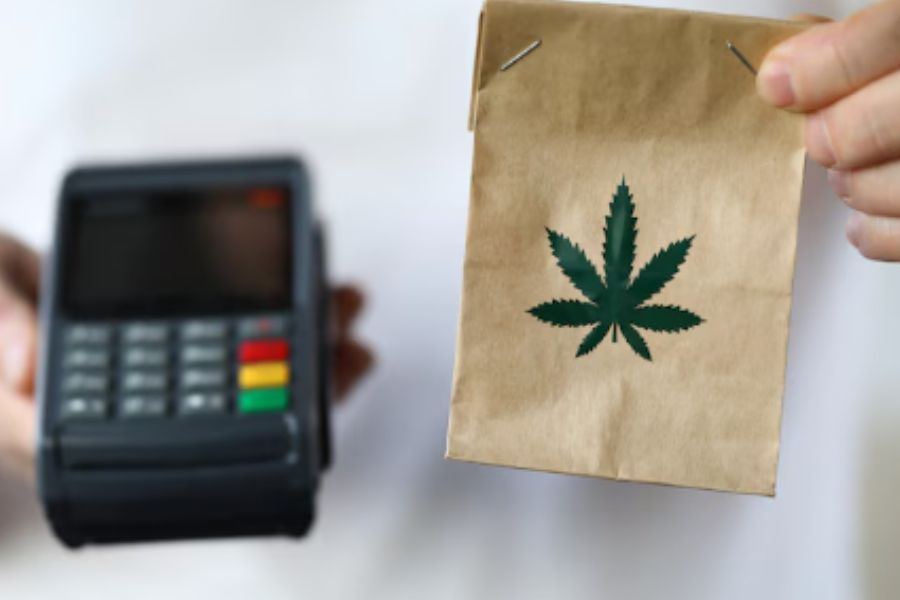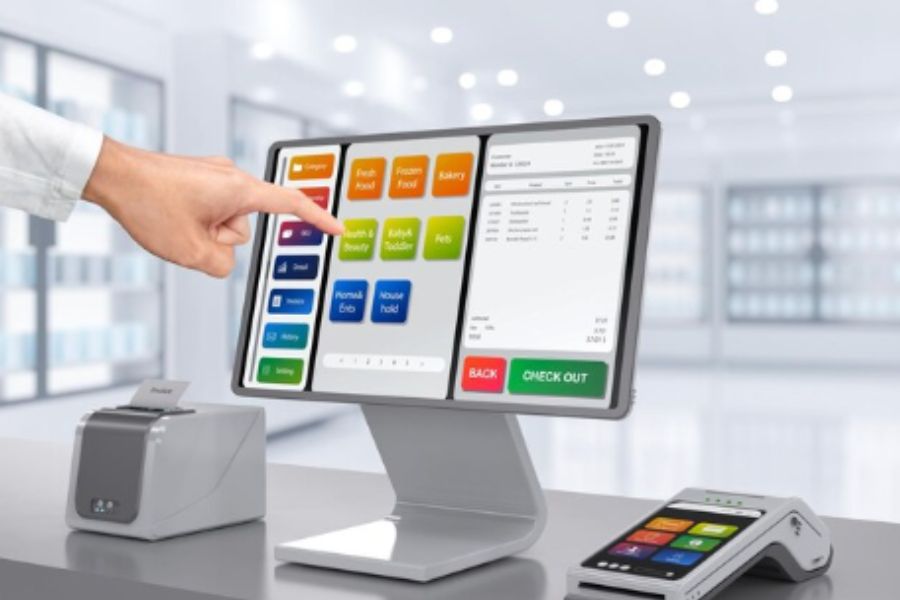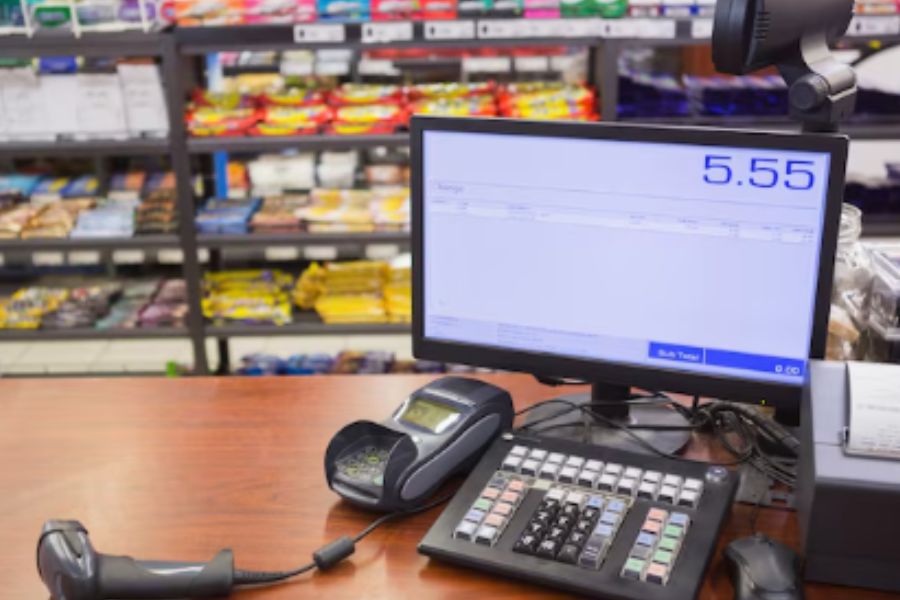A POS system is more than just a cash register; it’s a comprehensive solution that helps streamline operations, improve efficiency, and enhance the overall shopping experience for customers. Whether you’re a small, independent liquor store or a large chain, investing in a POS system offers a wide range of benefits. From inventory management and age verification to sales reporting and integrated payment processing, a POS system provides the tools necessary to run your liquor store smoothly and effectively.
In this article, we’ll delve deeper into the reasons why a POS system is essential for liquor stores, exploring the POS system liquor store various features and how they contribute to the success of your business.
What is a POS System Liquor Store?
A POS system liquor store is a specialized software solution designed to streamline operations and enhance efficiency in liquor retail establishments. Unlike generic POS systems, those tailored for liquor stores come with features specifically crafted to meet the unique needs of this industry.
These systems integrate seamlessly with the day-to-day activities of a liquor store, providing real-time insights, improving inventory management, and facilitating secure and efficient transactions.
8 Reasons You Need to Use a POS System for the Liquor Store
To stay ahead in this industry, adopting modern solutions is not just advantageous; it’s necessary. One such solution that can revolutionize your liquor store’s operations is a point of sale (POS) system. Let’s explore 8 compelling reasons why integrating a POS system into your liquor store is a game-changer.
Built-In Age Verification
Compliance with age restrictions is non-negotiable in the liquor retail industry. A POS system with built-in age verification features ensures legal compliance by prompting staff to verify the age of customers before completing a transaction.
By scanning IDs or inputting birthdates, you can prevent underage sales and mitigate the risk of regulatory penalties or fines. With age verification seamlessly integrated into the checkout process, you can prioritize safety and uphold your store’s reputation as a responsible retailer.
Streamlined Operations
Efficiency is the cornerstone of any successful business, and streamlined operations are the key to achieving it. A POS system liquor store automates various tasks, including inventory management, sales tracking, and employee scheduling.
By digitizing these processes, you eliminate manual errors, reduce paperwork, and optimize workflow. With streamlined operations, you can focus more on what matters most – delighting your customers.
Improved Liquor Inventory Management and Control
Effective inventory management is crucial for liquor retailers to avoid stockouts, overstocking, and shrinkage. A feature-rich POS system provides real-time visibility into your inventory levels, allowing you to track stock movement accurately. With automated alerts for low stock and insights into fast-selling items, you can make informed purchasing decisions and maintain optimal inventory levels.
Additionally, advanced analytics help identify trends and forecast demand, enabling you to adapt your inventory strategy proactively.
Real-Time Sales Insights
Understanding your sales performance is vital for making strategic business decisions. A POS system liquor store offers real-time sales insights, providing comprehensive reports on sales trends, top-selling products, and customer buying behavior. Armed with this data, you can identify opportunities for upselling, cross-selling, and promotional offers.
Moreover, access to historical sales data enables you to forecast future sales accurately and devise effective marketing campaigns.
Simplified Employee Management
Managing a team of employees efficiently is essential for delivering exceptional customer service. A POS system simplifies employee management by providing tools for time tracking, shift scheduling, and performance monitoring.
With customizable user permissions, you can control access to sensitive functions and track each employee’s activity accurately. Furthermore, built-in communication features facilitate seamless collaboration among staff members, enhancing productivity and teamwork.
Flexible Payment Processing
In today’s digital age, offering flexible payment options is imperative to cater to diverse customer preferences. A modern POS system supports various payment methods, including credit/debit cards, mobile wallets, and contactless payments. By accepting multiple payment types, you can enhance convenience for your customers and expedite the checkout process.
Additionally, integrated payment processing streamlines reconciliation and minimizes errors, ensuring smooth financial transactions.
Improved Customer Relationship Management
Building lasting relationships with your customers is essential for fostering loyalty and driving repeat business. A POS system doubles as a powerful Customer Relationship Management (POS CRM) tool, allowing you to capture customer data, track purchase history, and personalize interactions.
By segmenting your customer base and sending targeted promotions or loyalty rewards, you can enhance engagement and incentivize repeat visits. Moreover, feedback collection features enable you to gather valuable insights and address customer concerns proactively, strengthening trust and loyalty.
Simplified Promotions and Loyalty Programs
Promotions and loyalty programs are effective strategies for attracting new customers and retaining existing ones. A POS system simplifies the management of promotional campaigns and loyalty programs, allowing you to create custom discounts, coupons, and rewards schemes effortlessly.
With automated tracking of loyalty points and redemption options at the checkout, you can incentivize spending and encourage customer retention. Furthermore, analytics tools help evaluate the effectiveness of your promotions, enabling you to refine your marketing strategies for maximum impact.
Hence, the implementation of a POS system is not just a technological upgrade, it’s a strategic investment that can propel your liquor store to new heights of success. From optimizing operations to enhancing customer experiences, the benefits of a POS system are multifaceted and undeniable. By embracing innovation and leveraging the power of technology, you can future-proof your business and stay ahead of the competition in the dynamic landscape of liquor retail.
How to Choose the Right POS System for a Liquor Store
In this part, we will explore a step-by-step process to help you choose the right POS system for your liquor store.
Assess Your Requirements
Before diving into the plethora of POS systems available, it’s essential to assess your specific requirements and objectives. Start by asking yourself the following questions:
- What are the unique challenges and pain points in my liquor store’s operations?
- How many checkout stations do I have, and what is the expected transaction volume?
- Do I need integration with other systems such as accounting software or e-commerce platforms?
- What level of technical support and training will my staff require?
- What is my budget for purchasing and maintaining a POS system?
By addressing these questions, you can establish clear criteria to guide your selection process and ensure that the chosen POS system meets your business needs effectively.
Simplify the Checkout Process
One of the primary functions of a POS system liquor store is to streamline the checkout process for both customers and staff. Look for a POS system that offers an intuitive and user-friendly interface design, enabling quick and hassle-free transactions.
Features such as barcode scanning, touchscreen capabilities, and customizable buttons for popular items can expedite the checkout process and minimize errors.
Additionally, consider the hardware components required for seamless checkout operations, including barcode scanners, receipt printers, and cash drawers. Ensure compatibility between the POS software and hardware components to avoid compatibility issues and optimize performance.
Evaluate Inventory Management Capabilities
Effective inventory management is critical for liquor retailers to maintain optimal stock levels, prevent stockouts, and minimize shrinkage. Evaluate the inventory management features offered by each POS system, including:
- Real-time inventory tracking to monitor stock levels and receive alerts for low inventory.
- Barcode or RFID integration for accurate product identification and tracking.
- Batch and expiry date tracking for perishable items such as wines and spirits.
- Integration with suppliers for automated reordering and replenishment.
Choose a POS system that provides robust inventory management functionalities tailored to the unique requirements of liquor retail, enabling you to optimize inventory control and maximize profitability.
Consider Additional Functionalities
In addition to basic point-of-sale functionalities, consider each POS system’s additional features and functionalities to enhance your liquor store operations. Depending on your specific needs, you may require:
- Customer relationship management (CRM) capabilities for loyalty programs and targeted marketing campaigns.
- Reporting and analytics tools to gain insights into sales performance, customer behavior, and inventory trends.
- Integration with accounting software for seamless financial management and reporting.
- Mobile POS capabilities for added flexibility and convenience, especially during peak hours or special events.
- Compliance features such as age verification and regulatory reporting to ensure legal compliance in selling alcoholic beverages.
Evaluate the scalability and flexibility of each POS system to accommodate future growth and evolving business requirements, ensuring long-term suitability and investment protection.
Assess Security Features
Security is paramount when selecting a POS system for your liquor store, given the sensitive nature of payment transactions and customer data involved. Look for robust security features and protocols implemented by the POS system provider, including:
- Encryption of sensitive data, such as payment card information, during transmission and storage to prevent unauthorized access and data breaches.
- Secure user authentication mechanisms, such as unique login credentials and biometric authentication, to control access to the POS system and sensitive functionalities.
- Regular software updates and patches to address security vulnerabilities and ensure the system’s resilience against emerging threats.
- Implementation of strict access controls and permissions to limit user access to sensitive data and functionalities based on their roles and responsibilities.
- Data backup and disaster recovery procedures to ensure business continuity and minimize the impact of data loss or system downtime.
Prioritize POS systems with a proven track record of implementing stringent security measures and safeguarding against potential security threats, safeguarding your business and customers’ sensitive information.
Consider Reporting and Analytics
Insightful reporting and analytics capabilities are essential for informed decision-making and strategic planning in liquor retail POS. Choose a POS system that offers comprehensive reporting tools, allowing you to:
- Track sales performance and profitability across different product categories, brands, and promotions.
- Monitor inventory turnover rates, identify slow-moving items, and optimize stock levels.
- Analyze customer purchasing behavior, identify trends, and personalize marketing strategies.
- Forecast demand, plan inventory purchases, and optimize pricing strategies for maximum profitability.
Look for customizable reporting dashboards and intuitive analytics tools that provide actionable insights and empower you to make data-driven decisions to drive business growth and success.
FAQs: POS System Liquor Store
What is a POS system?
A POS (Point of Sale) system is a software solution used in retail environments, including liquor stores, to facilitate transactions between customers and businesses. It typically consists of both hardware and software components, including a computer terminal, barcode scanner, receipt printer, and POS software.
The software allows businesses to process sales, manage inventory, track customer interactions, and generate reports for business analysis. A POS system serves as the central hub for managing various aspects of a liquor store’s operations efficiently.
Are POS systems customizable for different liquor store needs?
Yes, many POS systems offer customization options to cater to the specific needs and preferences of liquor store owners. These customization features may include:
- Tailored inventory management functionalities to accommodate the unique characteristics of liquor products, such as batch tracking, bottle sizes, and vintage years.
- Customizable user interfaces to streamline the checkout process and improve staff productivity.
- Flexible pricing structures to accommodate special promotions, discounts, and pricing strategies commonly used in liquor retail.
- Integration capabilities with third-party software solutions such as accounting software, e-commerce platforms, and customer relationship management (CRM) systems to create a seamless operational ecosystem.
By choosing a POS system with robust customization options, liquor store owners can tailor the system to suit their unique business requirements and workflows effectively.
Can a POS system help with regulatory compliance?
Yes, a POS system can be crucial in helping liquor stores maintain regulatory compliance, especially concerning age verification and alcohol sales regulations. Key features that contribute to regulatory compliance include:
- Built-in age verification functionality that prompts cashiers to verify the age of customers before completing alcohol sales transactions, helping prevent underage sales.
- Compliance with Payment Card Industry Data Security Standard (PCI DSS) requirements to safeguard sensitive payment card data and ensure secure payment transactions.
- Reporting capabilities to generate audit trails and transaction logs required for regulatory reporting and compliance audits.
- Integration with state-specific alcohol regulatory systems for automated reporting of sales, taxes, and other regulatory requirements.
Conclusion
In conclusion, a POS system tailored for liquor stores is not just a technological upgrade but a strategic investment in the success and sustainability of the business. From streamlining operations to enhancing customer relationships, the benefits are diverse and impactful. By understanding the unique needs of a liquor store and selecting the right POS system liquor store, store owners can elevate their operations, stay compliant with regulations, and ultimately provide an exceptional shopping experience for their customers.
If you want to innovate your liquor store, contact us for advice and support!



